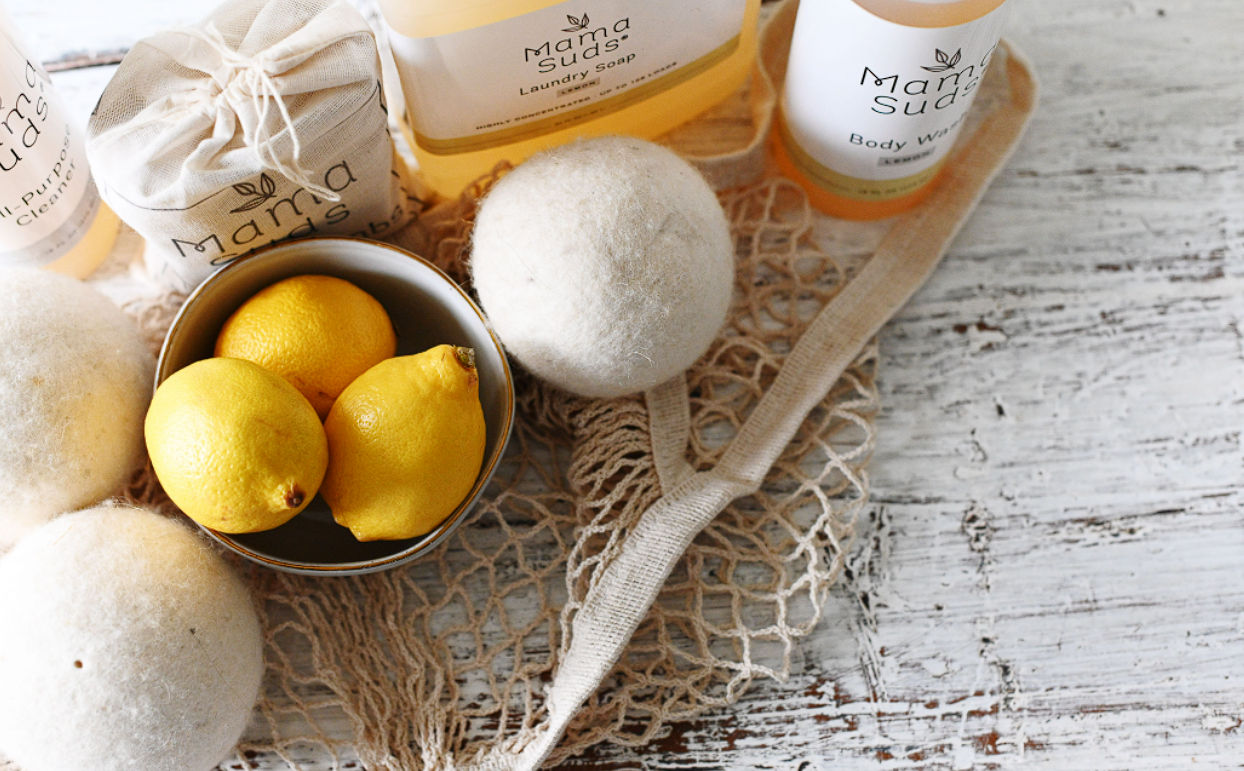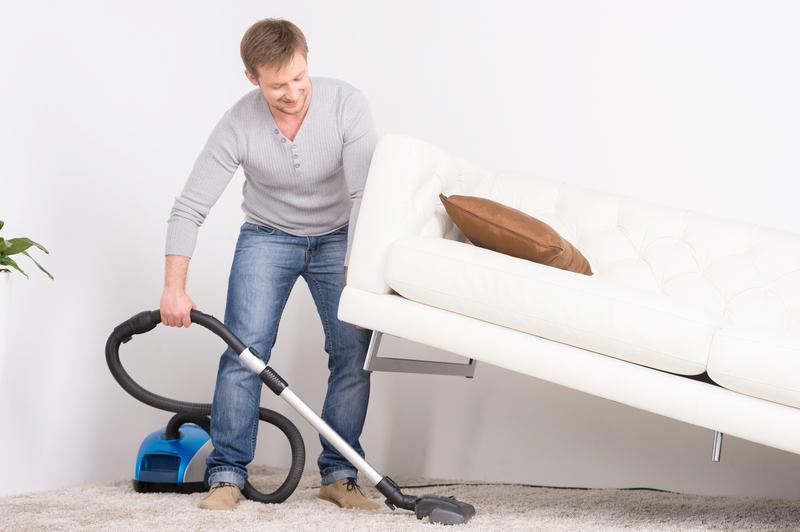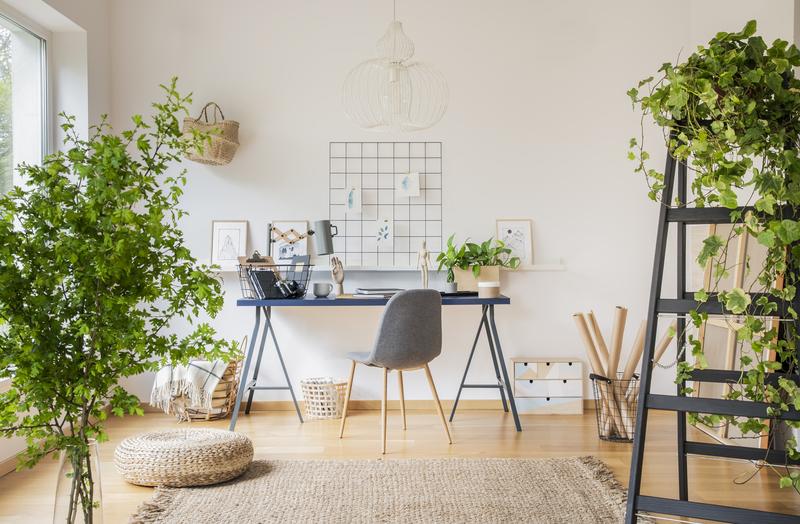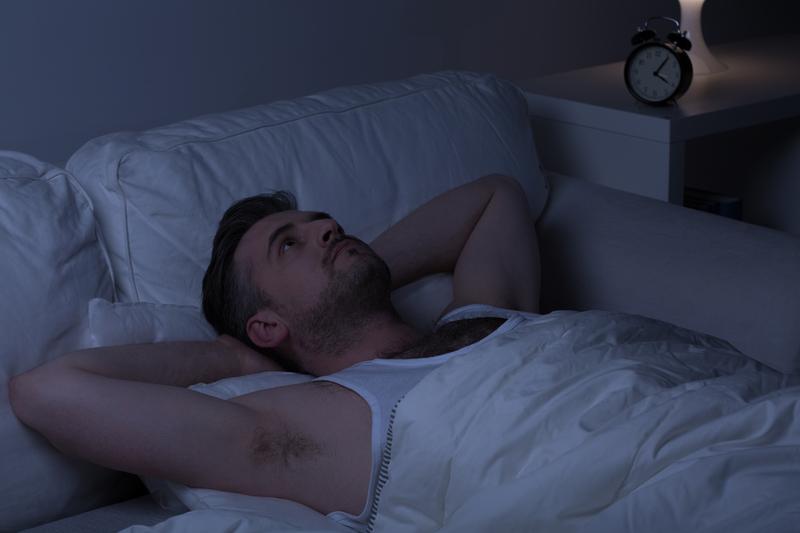
The CleanSuds Blog
Where education and truthful facts are easy to come by.

How to Stop Dangerous Water Damage to Your Home
Water damage is the last thing anyone wants in their home. You can avoid dangerous water damage by keeping wet areas dry, sealing up cracks, and checking pipes and pumps. This will ensure that your home will stay safe and you won’t need to worry about any danger.
Keep Wet Areas Dry
There are many areas of your house that are prone to become a little damp. It’s important for you to keep wet areas of your home, like the bathroom and laundry room, dry by using dehumidifiers, fans, etc. Showers and cooking can even add water to your house, and you’ll need to make sure that you control the moisture in your home. You can control moisture and keep your home dry by raising the temperature of cold surfaces, turn off certain appliances if you notice moisture, and use exhaust fans in the bathroom and kitchen.
Seal Up Cracks
Sealing up cracks is a great way for you to stop water damage to your home. Cracks in your house will allow water to enter and can cause problems with the foundation, ceilings, walls, and every other part of the house. If they are properly sealed, then you can avoid water damage. Poor basement sealing is one of the most common causes of flooding. Sealing cracks in your house will also help you to avoid any unwanted pests and can help keep your heat inside your house. Sealing the cracks will help you save money in the long run.
Check Pipes and Pumps
Pipes can freeze in the winter and your sump pump can malfunction. If you are checking your pipes and pumps, then you should be able to avoid a flood. Your sump pump plays a critical role in making sure your basement doesn’t flood after a lot of rainfall. To avoid a flood, you should make sure it’s properly maintained. Your pipes also play a critical role in your home. If they aren’t properly maintained then they could burst and cause a lot of issues for your home, including some dangerous water damage.
Water damage does happen on occasion, but there are things you can do to avoid it. you can keep wet areas of your home dry, you can seal up cracks, and you can check the pipes and pumps in your home. Doing these things will help you to feel safe within your home.
Read this next: How to Keep Your Carbon Emissions Low in the Winter

How to Get Rid of Bad Smells in Your Home
A stinky house is not a place where you want to spend a lot of time, and when you discover a bad smell in your home you may not know exactly what to do. Once you have found a bad smell in your home, it is important to take care of it quickly so you can begin to enjoy your home again for all the great things it has to offer.
Find the Source
The first thing to do when you find a bad smell in your home is to figure out where it is starting. Different rooms have different ways of getting smelly, so doing a thorough search of your home should help you figure out the source. Rooms where pets spend a lot of time tend to be more prone to bacteria and mold. Finding the source of the stench lets you focus your efforts on removing smells and mold and start making your home a place that is as appealing to smell as it is comfortable.
Start Cleaning
Once you have found the source of the smell, you can start cleaning to get rid of it. One of the best tools for neutralizing odors is baking soda. Once you’ve cleaned the affected area, add baking soda and give it time to set in. That should take care of a lot of the smell for you, and once it has had time to sit you can wipe or vacuum it off. Allow for lots of ventilation during and after your cleaning to help give the air a chance to clear and get the smell out more quickly.
Sometimes smells are able to sink deeply into materials. If it is still smelly after your first cleaning, try to go over it one more time. That can help minimize the smell and get your space back the way you want it.
Make it a Habit
The easiest way to get rid of odors is to have regular cleaning habits and avoid getting the odors in the first place. Start developing good cleaning habits so you can keep your house under control and avoid the stress of big messes. Work to clean messes as they occur so you can prevent odors before they even start. Having a running list of chores and assigning them to particular days of the week can help you stay on top of tasks and keep your home clean and fragrant.
Odors in your home can cause a lot of stress and discomfort. By taking care of odors quickly you can return your home to the happy place you want to spend your time in.
Tackle your home odors naturally with any of our safe household cleaning products!

How to Keep Your Carbon Emissions Low in the Winter

During the winter, carbon emissions may increase as more people are using heat in their homes. Whether it be from appliances or heating systems, your home can be one of the sources of this increase. Don’t worry! There are steps you can take to reduce your carbon emissions this winter.
Fix Energy Leaks
An energy leak is any area of your home where air is escaping in or out of your house. These leaks make it so your heating system has to work harder. Fixing the energy leaks in your house allows you to use energy more efficiently. You can save money and lower your impact on the environment. One way to address energy leaks is by improving the insulation in your home. Pay careful attention to insulating your attic space as this is an area where a lot of heat is lost. You should also make sure your windows and doors are well insulated. It may be helpful to have your house checked to see where air may be escaping.
Switch to Electric Appliances
Much of the carbon emissions from homes is due to appliances. They use a great deal of energy and can be wasteful. In order to reduce your carbon emissions, consider switching to more efficient electric appliances. For example, you can replace your fireplace with an electric fireplace. Electric fireplaces lead to healthier indoor air because there is no wood or gas to burn. They also reduce the amount of carbon released into the outdoor air. Similarly, you can switch to an electric stove rather than a gas stove. This will give you many of the same benefits as an electric fireplace.
Get an Efficient Water Heater
In the winter time, hot water is a necessity. However, you can switch to a different water heater that allows you to still get plenty of hot water in the winter while also being more energy conscious. We just recently purchased an instant water heater and we really love it. More than 2 people can take a shower in a night and you never run out of hot water. The best part, you aren't heating water when you aren't using it! There are many different types of water heaters. Each type has different benefits, but not all of them are perfect. For example, a solar water heater reduces the amount of electricity produced to heat your household’s water. However, they can be costly and are only useful in areas with a lot of sunlight. As you decide on a more efficient water heater, consider all the factors and determine which will work best for you.
Decreasing your carbon emissions is an important step. While some methods may be more costly or something to consider long-term, there are plenty of things you can do now. Start looking for ways you can decrease the carbon emissions from your home.
Read this next: 3 Easy Ways to Get Your Home Ready for the Winter

What Are EMFs and How Do They Impact Your Life?
• Prolonged exposure to certain types of EMFs can have negative implications for health, including hair loss, skin damage, burns and fertility loss.
• To reduce exposure to EMFs: keep internet routers at least 20 feet away; invest in devices that offer protection; limit Wi-Fi and mobile data usage.
• By taking steps to reduce exposure to EMFs, individuals can avoid related problems and live healthier lives.

3 Changes That Can Improve Your Mental Health at Home
• Adding potted plants with minimal care requirements is a great way to improve mental health.
• Invest in storage solutions to keep cherished items out of sight, and set small clutter-reducing goals to avoid feeling overwhelmed.
• Create comforting spaces incorporating soothing sights, sounds, feelings, colors and scents.
• Little changes made gradually can have considerable benefits on mental health.

Backyard Activities You Can Start Doing with Your Children

When you have kids, there is nothing quite like your backyard for creating fun memories and building a love of nature. There are lots of things you can do in your backyard to keep you and your kids occupied, but here are a few of the most fun and productive.
Raise Chicken
Raising chickens is a great way to spend time with your kids and teach them responsibility. If you get your chickens early, you will have the great opportunity to start with adorable chicks, watch their awkward teenage stage, and handle them often so they are friendly pets your kids will love.
In terms of farm animals, chickens are incredibly easy to care for and will help you stay on top of any bug or weed problems you may have in your backyard. Raising your own chickens can be a rewarding experience for you and your kids.
Gardening
Having a garden has never been easier, from opportunities to buy seeds online, to the ready availability of gardening information, now is an ideal time to enter the world of gardening. Buying your seeds online can be convenient and comes with many benefits. Gardening is great for reducing stress, has a low barrier of entry so kids can help, and you’ll end up with a beautiful harvest throughout the summer months. There is something incredibly fulfilling about watching your garden grow and being able to taste the final product. We highly recommend Treats for Chickens for your organic chicken treats and food needs!
Play Outdoor Games
Backyards are great spaces to run and play and inspire your children’s imaginations. Games like corn hole, bocce ball, and croquet are fun and help your kids build self-esteem and hand eye coordination. Another great outdoor activity is building a water wall. Use recyclable materials to create a path for water to follow, and then have fun splashing around with your new experiment. All of these games can be fun for kids and adults to play together and will give you all the opportunity to bond and really take advantage of your backyard.
Your backyard can be a fun and productive space, all you have to do is learn how to use it effectively. By creating a garden, raising your own chickens, and finding activities to do with your kids, you can make your backyard your favorite place to be.
Read this next: Creative Uses of Baking Soda Around Your House

What’s Disrupting My Sleep?
There are many factors that have a direct impact on your health and overall quality of life. Many people think of diet and exercise habits when talking about improving health. Perhaps less commonly considered, but no less important for it, is how you sleep at night. Sleep is very much intertwined with physical and mental health. Unfortunately for many people, quality sleep is rather elusive. Here's a closer look at some things that could be disrupting your sleep.
Depression and Anxiety
Mental disorders and poor sleep often go hand in hand, and depression and anxiety are no exception. Unfortunately, these problems have a tendency to be cyclical in nature. They can become so disruptive to sleep that depression and anxiety can cause insomnia. The reverse is also true. The lack of sleep brought on by insomnia can cause or worsen depression and anxiety, especially as the ability to function on a day to day basis becomes impeded. Those suffering from these disorders may find regular exercise, a healthy diet, and self care helpful in reducing anxiety and depression, which may have a positive impact on sleep. Try self care activities such as massage, meditation, or other relaxing activities.
Electromagnetic Fields
Electromagnetic fields are fields that are created by moving electrical charges. As it turns out, we're virtually surrounded by devices that emit EMFs. Microwaves, bluetooth devices, power lines, WiFi routers, computers, and phones all emit EMFs. EMF emitters can disrupt your sleep even when your body feels tired. Computers and phones are among the most common culprits. These devices emit a blue light that can interfere with your body's natural ability to secrete melatonin, which plays a key role in how you sleep. To counteract these effects, limit your exposure to blue light two to three hours before going to bed. Try wearing glasses that block blue light, adjusting display settings, or avoiding using the devices altogether.
Sleep Apnea
Sleep apnea is a sleeping disorder that affects a little over one-third of adults. It causes people to stop breathing while they are sleeping, which, in addition to being incredibly dangerous, prevents deep, restorative sleep. If you suffer from sleep apnea, it's important to take action quickly. Many people use a CPAP machine while they sleep. Lifestyle changes, such as losing weight, may also be helpful in reducing sleep apnea.
If you have trouble sleeping, there are a variety of factors that could be responsible for it. Depression and anxiety, devices that emit electromagnetic fields, and sleep apnea can all contribute to difficulties sleeping. In a majority sense, these issues aren't ones that will resolve themselves on their own. Take action now to resolve them and get back to sleeping soundly at night.
Read this next: 3 Decorating Tricks to Reduce Allergies
3 Easy Ways to Get Your Home Ready for the Winter

Winter is fast approaching, and with it cold, wet weather that can cause problems for your home. There's always plenty to do when it comes to maintaining your home. Some of those projects might be bigger and more complex. Others are quite simple, but no less important for it. Here are three tasks that fall into the latter category.
Replace Air Filters & Clean Your Furnace
No one wants to go without heat when it gets cold outside. Replacing your air filters regularly and cleaning your furnace before winter hits is important to helping it function properly. How frequently you should replace filters depends on the filter you're using and who is in your home. Homes with pets or people with allergies will benefit from changing filters more frequently. Every two to three months is usually advisable, and the process is quite simple. According to Molly Maid, cleaning your furnace is a little more involved, but still quite doable. Doing so will help cut down on the dirt and debris that would otherwise move through your system.
Clean Your Gutters
Your gutters help protect your home from precipitation and moisture that could otherwise damage your siding and foundation. Water isn't the only thing that gets in gutters though. Leaves, sticks, dirt, and even toys can find their way into gutters. If left unattended, they can clog them up and prevent your gutters from doing their job properly. This can cause water to spill over them and down your house, potentially causing water damage. Ideally, according to Comfort Solutions, your gutters should be cleaned twice a year. If your property has lots of trees though, you may need to clean them out more frequently.
Test Smoke and Carbon Monoxide Detectors
According to SELF, fires are more common in winter than any other time of the year. People are home more, turning up the heat, cooking, lighting candles, and more. All of these can contribute to house fires. Since smoke detectors are usually the first indicator of a house fire, it's vital to make sure they're working properly. While you're at it, test your carbon monoxide detectors too. Like house fires, carbon monoxide injuries tend to be more prevalent in winter. Colorless and odorless, you may not realize you've been exposed until it's too late without a properly working detector.
Getting your home ready for winter doesn't have to be difficult. Replacing your air filters and cleaning your furnace, cleaning out your gutters, and testing your smoke and carbon monoxide detectors are easy tasks that can make a real difference in your experience this winter. Take action now before winter sets in to protect your home and stay warm and safe.
To make sure your home is the most ready, clean it with some of our eco-friendly house cleaning products!

A Guide To Disinfecting Your SUV
Staying healthy has become more important than ever before and people all over the world are taking active steps to protect themselves from getting sick. Not only are there more individuals wearing protective face masks, but we’re also paying more attention to hygiene and making sure that our homes are free of germs and bacteria. As germs and viruses can stay on surfaces from 4 hours to 17 days, proper disinfection is essential to ensure that your family stays well. Disinfecting the home should be the main priority, but don’t forget to give your family vehicle a thorough clean too, especially if you use it everyday. Here’s a guide to disinfecting your SUV.
Use water and a mild cleanser to clean non-porous surfaces
Whether it’s a conventional car or an SUV, all family vehicles will benefit from a complete cleanup job that involves more than washing and waxing the exterior. To clean the interior of your SUV, mix a mild all-purpose cleanser or Castile soap with water, then dip a soft sponge in the mixture and use it to clean hard and non-porous surfaces such as the arm rests, door handles, and the glove compartment, among others.
Most people think that antibacterial cleansers or household disinfectants such as bleach, ammonia, or hydrogen peroxide are the only things that could work to remove viruses, but new research has shown that soap can destroy most virus membranes, and plain water will do to wash them off surfaces. Moreover, it’s far gentler on your SUV interiors as they won’t harm or dull hard surfaces. Floor mats should also be removed and given a thorough wash with soap and water, then allow them to dry naturally under the sun.
Pay attention to high-touch areas
High-touch areas inside the SUV such as the steering wheel, the gear shift, door handles, turn and wiper signal, seats, and the buttons on the sound system unit and climate control unit should be disinfected as frequently as possible, especially when you’re running errands or are taking your kids to their after-school activities. Clean these areas once a week with a soap and water solution and have a packet of alcohol wipes to disinfect them when you’re on the go. It’s also advisable to disinfect your hands before going inside your SUV, so have some hand sanitizer with you whenever you leave the house. Encourage your family members to do the same before getting in the vehicle.
Ventilate your SUV
Proper ventilation can reduce virus levels inside your SUV. To create a healthy environment within the vehicle, open the windows so that there’s at least a 3-inch gap to keep the air circulating. When not in use, you may also open the doors and windows to air out your vehicle, or place a portable air purifier or ionizer to clean the air inside. Regularly dust the interiors and to further improve the air quality in your vehicle, use natural or organic car air fresheners to get rid of musty smells. You can buy one or make your own by mixing half a cup of baking soda with about a teaspoon of peppermint or lavender essential oil.
Keeping your SUV clean and sanitized can protect your family against illnesses. Try these tips to thoroughly disinfect your vehicle so you and your loved ones can stay healthy.


